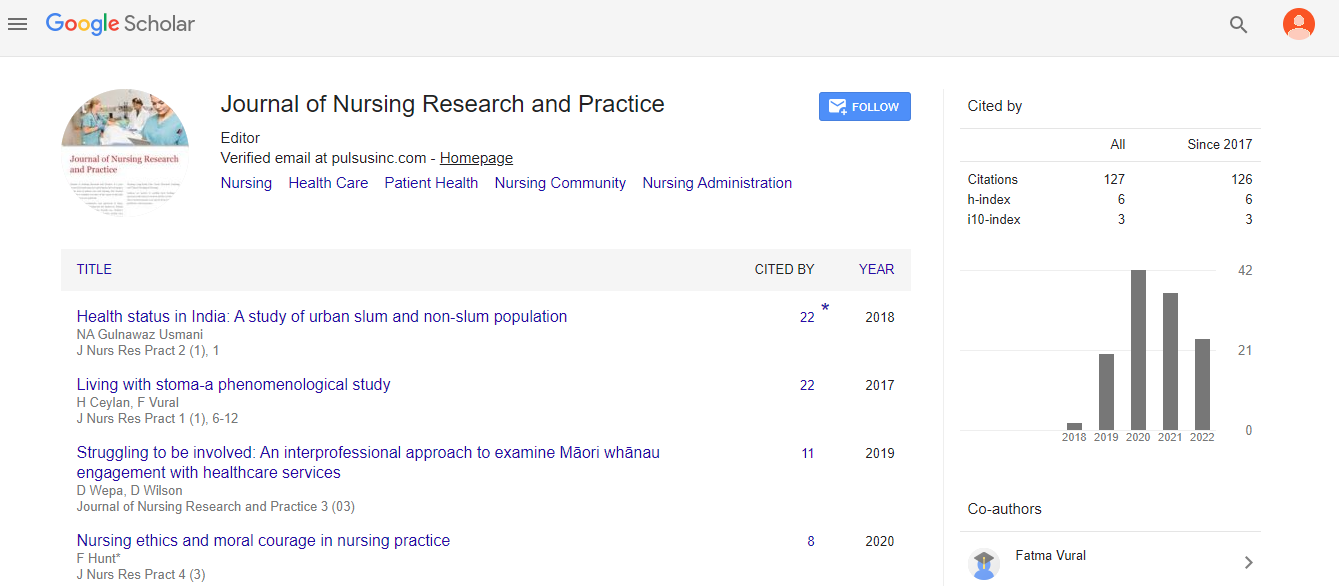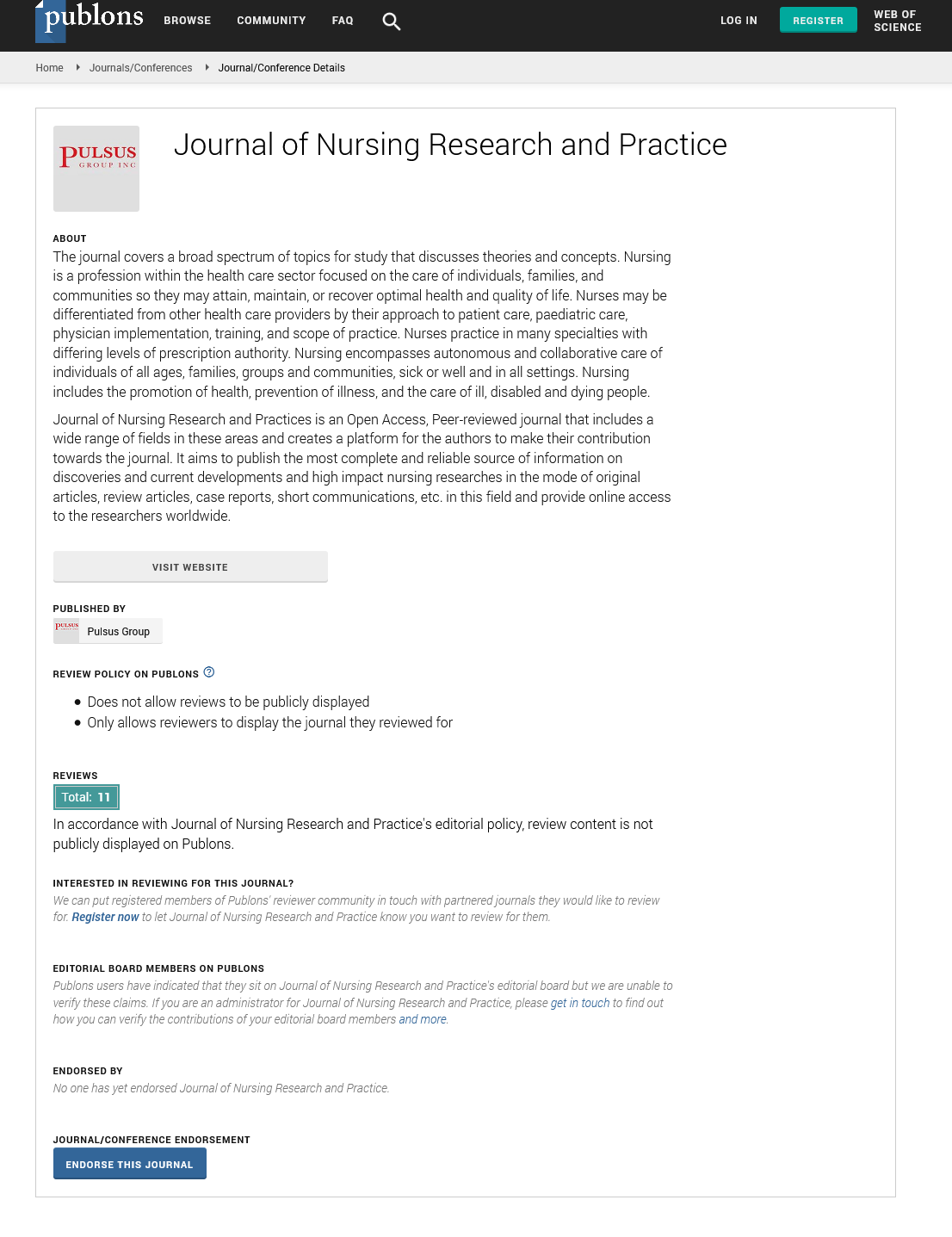Palliative care as human right
2 Department of Galilee Palliative Care Unit, Holy Metropolis of Mesogaia and Lavreotiki, Greece, Email: nikolaos.kakaras@gmail.com
Received: 03-Dec-2018 Accepted Date: Dec 04, 2018; Published: 10-Dec-2018
Citation: Argyriou G, Kakaras N. Palliative care as human right. J Nur Res Pract. 2018;2(4): 7.
This open-access article is distributed under the terms of the Creative Commons Attribution Non-Commercial License (CC BY-NC) (http://creativecommons.org/licenses/by-nc/4.0/), which permits reuse, distribution and reproduction of the article, provided that the original work is properly cited and the reuse is restricted to noncommercial purposes. For commercial reuse, contact reprints@pulsus.com
Since 1967, were Dame Cicely Saunders established St. Christopher’s Hospice in London, the global need for palliative care has been dramatically increased [1].
Palliative care is an approach that aims to improve the quality of life for patients and their families facing the problems associated with lifethreatening illness. This is achieved through the prevention and relief of suffering by means of early identification and impeccable assessment and treatment of pain and other problems: physical, psychosocial and spiritual. Based on a multidisciplinary team model, palliative care brings patients and their families at the centre of focused care. The holistic approach aims to cover any possible need of the patient.
In a study by Wright et al. palliative care activity could be found in 115 countries, thus covering almost half the world [2]. In 2013, a global update of palliative care development by Lynch, Connor and Clark indicated that the number of the countries with palliative care activity had increased from 115 to 136, crossing the half-way mark. These findings show that the importance and value of palliative care is increasingly being recognized, and that palliative care services are developing into a global practice [3]. However, according to the World Health Organization (WHO) in 2015, of the 40.000.000 people needing palliative care, only 14% were received it [4].
In the Prague Charter of 2013, the European Association for Palliative Care (EAPC), the International Association for Palliative Care (IAHPC), the Worldwide Palliative Care Alliance (WPCA), Human Rights Watch (HRW) and the Union for International Cancer Control (UICC) declared access to palliative care to be a human right [5].
This paper [5] urged all governments worldwide to ensure that patients and their families have access in palliative care services as well as in essential medicines including opioids analgesics. Furthermore, called international organizations and forums such as the European Union, the WHO, the Council of Europe, the World Health Assembly, the World Medical Association and the International Council of Nurses to promote the right to palliative care.
Additionally, invited national and regional palliative care associations to support palliative care philosophy which includes the public health approach as well as the development of specialist services. Also academic institutions universities and teaching hospitals in developed countries to train and motivate healthcare professionals working in primary care to integrate palliative care in their services. Underlined as well the importance of changes that need to take place in training curricula for healthcare providers at undergraduate level so nurses, doctors, pharmacists, psychologist, etc. to become familiar with the basic knowledge of palliative care.
Despite this, in many countries palliative care is not accessible, resulting in unnecessary suffering for eligible patients [3]. Research has shown that palliative care not only provides dignity and comfort to patients and their families, but also saves money for the health system of each country in which it is established [6]. Governments of all countries should take action to ensure palliative care becomes integrated into the health care system; providing training and education to all health care professionals, and creating the appropriate facilities were patients and their families can access this care.
Human beings have fought for centuries for the right to live with freedom and dignity. It cannot be denied that death is a part of life, so all human beings should have the right to die with dignity, without unnecessary suffering, under the cloak of palliative care.
REFERENCES
- Connor SR. Hospice: Practice, pitfalls and promise. Washington: Taylor & Francis 1998: 5.
- Wright M, Wood J, Lynch T, et al. Mapping levels of palliative care development: a global view. J Pain Symptom Manag. 2008;35:469-85.
- Lynch T, Connor S, Clark D. Mapping levels of palliative care development: A global update. J Pain Symptom Manag. 2013;45:1094-106.
- World Health Organization. Palliative Care fact sheet 2018.
- Radbruch L, de Lima L, Lohmann D, et al. The prague charter: Urging governments to relieve suffering and ensure the right to palliative care. Palliat Med. 2013;27:101-2
- Starks H, Wang S, Farber S, et al. Cost savings vary by length of stay for inpatients receiving palliative care consultation services. J Pallia Med. 2013;16:1215-20.






